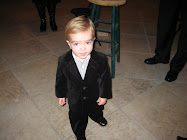
Author of
The Piano, Jeremy Siepmann, states: "It was for the piano that Mozart wrote his twenty-seven concertos, most of which are held to be his finest instrumental music; that Beethoven wrote his epoch-making sonatas; that Schubert wrote his beautiful waltzes and impromptus; that Chopin and Liszt wrote music which opened up a whole new world of sound and raised virtuosity to heights never before imagined; that Mendelssohn wrote his "Song Without Words", and that Schubert, Schumann, Brahms, and Wolf wrote arguably the greatest songs with words ever written" (Siepmann 1). The story of the piano is one of a Hollywood actor or actress; of a certain age, many have undergone their share of facelifts and implants. Thus, in order to fully appreciate the pianoforte and the music it brings to the ears and the soul, it is helpful to study the pianoforte's evolutionary process.
David Grover states: "The idea of fitting a keyboard to an instrument with strings, which started to vibrate when struck by hammers, was conceived probably in the fourteenth and certainly in the fifteenth century. For the next two hundred and fifty years, however, the harpsichord with plucked, rather than struck, strings, held undoubted sway. The clavichord also, had its adherents and within its severe limitations was responsive to gradations of finger touch, its strings stuck by miniature tangents" (Grover 1).
Just as it is hard to determine the first man or woman to inhabit the earth, it is also difficult to determine the true genesis of the pianoforte; both go back thousands (some would argue millions) of years before Common Era. The origins of the modern piano are found in the string family as well as the percussion family of long ago. Its "garden of Eden" birth may be a drum or a lyre, and next, an oppurtunity to mysteriously combine the two. An educated guess would deduct that this combination was a consummation of African percussion with the Greek and Roman lyre; thus, the idea to become the Dulcimer somehow made its birthing room in Iran (Heaton 2). This ancestor originated shortly after the Common Era. The dulcimer illustrates the basics of the piano; the hammer strikes multiple strings tuned over a flat soundboard. The dulcimer player uses two light sticks that end with broad blades to strike the strings.
As the dulcimer made its way to other parts of the world, it evolved into new instruments that allowed more use of dynamics. Donald Grout, author of the textbook,
A History of Western Music notes some offspring of the dulcimer. The earliest keyboard instruments were of the clavichord and harpsichord type (Grout 120), although they were invented in the fourteenth century, they were not commonly used until the fifteenth. The clavichord was not popular until three centuries after its construction due largely to Bach's utilization of it (Gibson 2). The Gibson Study notes that when the clavichord key is pressed, a vertical brass strip is lifted toward a pair of strings, remaining in contact with it (Grout 207). This instrument has a typically quieter tone, but within narrow boundaries the craftsmjanship allows for some control of dynamics as well as vibrato (2). Similarly, the harpsichord reached its peak during the time of the composers, Bach and Handel (2). The harpsichord form displays keys that are in line with the strings. The harpsichords came in various shapes and sizes and thus were named accordingly: virginal, spinet, clavecin, and clavicembalo, and others (Grout 207). By varying the sizes and shapes, Grout states that the builder could achieve "different timbres and degrees of loudness by adding a second mechanism, which allowed coupling with another string, usually tuned an octave higher" (207). Some harpsichords were plucked with a quill, while others were built in the form of the modern grand to produce individually desired dynamic effects. The clavichord was used more for solo performances in small rooms where dynamics could be heard more easily, and the harpsichord was used for both solo and ensemble playing in larger spaces due to its natural strength in dynamic. By listening to the dynamics (the personality), emotions or souls have been stirred with recognition and/ or personal relation to the piece.
Through each evolution, a growing interest in dynamic control by touch also evolved. Instruments were built with specific attention given to dynamics by how soft or hard the key was pressed (Gibson 1). Originally built in Italy, the Spinet was "perfected" by the English in the late seventeenth century (2). Its "jack mechanism" plucks the strings just as the virginal, but the shape (wing-shape) permits longer strings, expanding both the volume and range (2).
In the late seventeenth century, the realization of broader melodies, phrases growing louder rather than softer, and accentuation was apparent. Bartolommeo Cristofori is credited with building the first piano, between about 1709 and 1711. He called his instrument the "gravicembalo col piano e forte," or harpsichord, although it differed in its action mechanism (Grover 1). Grover notes how deer leather struck the strings of the pianoforte and a "primitive escapement or 'set off' was employed, enabling the hammer to escape from the string, rather than to block on it, thereby smothering the vibrations the hammer itself had originated" (Grover 1). By the 1720s, Cristofori had experimented with twenty "gravicembali" and added a "padded check to catch the hammer on the rebound..." (1). The check would be used further in the next century to vary the speedy repetition desired by the "dazzling pianists" (2). Cristofori discovered problems and created the solutions for this primitive piano. Although there were advancements, it still sounded very weak and was yet comparable to the harpsichord.
During the 1730s, more progress on Cristofori's piano was conducted as harpsichord and organ builders from Saxony and Bavaria began experimentations as well. Grover states, "Gottfried Silbermann was the best known of this group"; for he is well known as the one who attempted to interest J.S. Bach with his new instrument.
The Square Grand Piano originated when "German builders (especially Johannes Socher in 1742) tried to adapt Cristofori's pianoforte to the traditional rectangular shape of the clavichord" (Grover 3). Grover notes how the square piano was popular until around 1900.
The Seven Years War of 1756-1763 saw production decline for the instrument as well as most everything. There was a small number known as the "twelve apostles" who migrated to England to carry on the production. In London, Johann Zumpe was first of the twelve to set up his own shop of small square pianofortes in 1766. His pianofortes were comparable to Cristofori's, which had been refined by Silbermann (2). The square pianos were crude, yet a novelty and desired in the home as well as public. Paris also found favor with these crude pianos. Thus, Silbermann soon made sure Paris produced also.
The piano's square design was enlarged by John Broadwood in 1771 (2). This change made way for greater resonance. Broadwood and John Geib "separately contributed to the elaboration of the square piano action" (2). With this progress, Grover adds, "the square proved reasonably satisfactory, so that it was readily accepted in the first half of the nineteenth century, making its way into far more homes of modest and not so modest pretensions, than did its wing-shaped horizontal rival, first named "grand" in 1777" (2).
Another ancestor of the pianoforte is the Upright. The upright piano's design was already being used for harpsichords in the sixteenth century, but in the eighteenth century, many piano builders (notably in Germany) tried to apply the form to the pianoforte. In 1800, Grover notes the "first satisfactory uprights were invented" (3).
Much credit is due to Broadwood for his contributions in developing the grand. A separate bass bridge was introduced, he changed the hammer's striking ratio to one ninth of its "speaking length", he incorporated higher string tensions, he expanded range in treble and bass clefs and added heavier string, and he added a sustain peddle. All of these improvements enabled powerful dynamics and maximum tone from the instrument, putting England as world leader in production quality and quantity (3). These are the characteristics of what became known as the "English-action" (3).
During the nineteenth century, the piano became more "powerful and responsive," Grover notes (3). Double-repetition action of Sebastien Erard (Paris 1821), and the full cast-iron frame of Alphaeus Babcock (Boston 1825) were the major improvements that are the basis for today's extended keyboard (3).
Today's grand piano includes the best qualities of the ealier keyboard instruments. Grover says, "cross stringing -- a way to achieve greater richness of tone by passing more strings over the center of the soundboard -- was invented by Alphaeus Babcock in 1830, but was not used in the grand until the second half of the nineteenth century" (3). Also, the sostenuto (middle peddle), introduced in the late nineteenth century, permitted greater musical coloring.
Every evolution revealed substantially more and more interest in expressing dynamics and being able to relate with the listeners. Each modification was more obsessed with the control of sound being produced by the player. It is imperative that each offspring of the first piano be appreciated for its individual achievements to better understand and embrace the piano music produced today.
Works Cited:
Gibson.www.baldwinpiano.com/learn/phistory.html
Grout, Donald J., Claude V. Palisca.
A History of Western Music. London: W.W.Norton & Company, Inc. 6th ed. 2001.
Grover, David S.
A History of the Piano from 1709 to 1980. Omicron Publishing, 1976.
Heaton, Barrie.
The U.K. Piano Pages. Association of Blind Piano Tuners. 2002.
Siepmann, Jeremy.
The Piano. London: Carlton Books Limited, 1996.



























